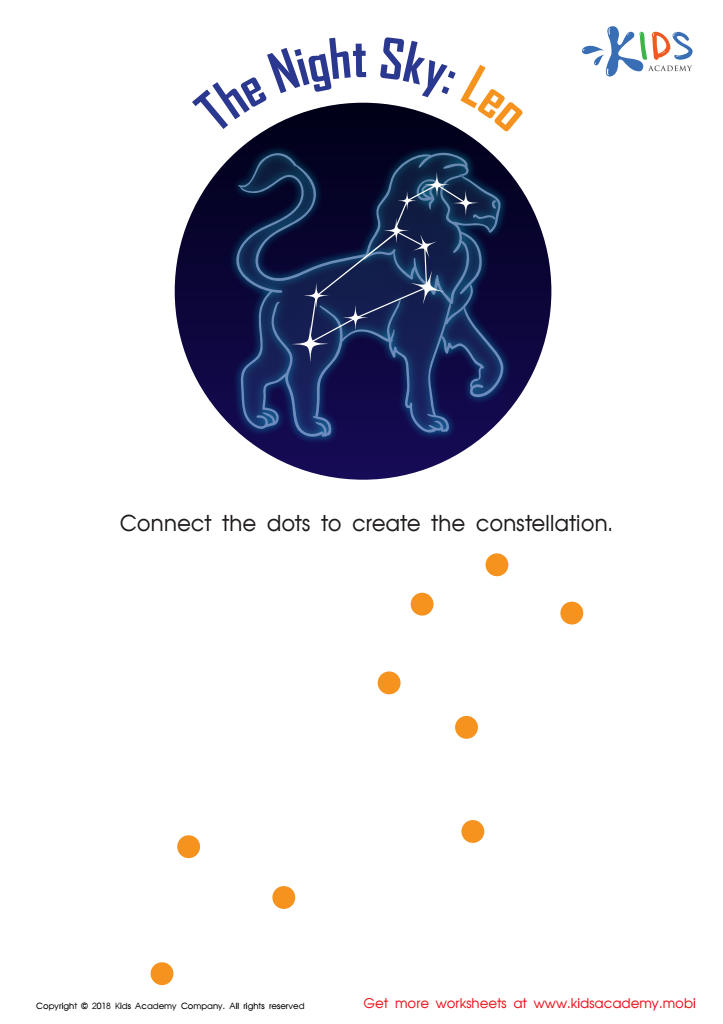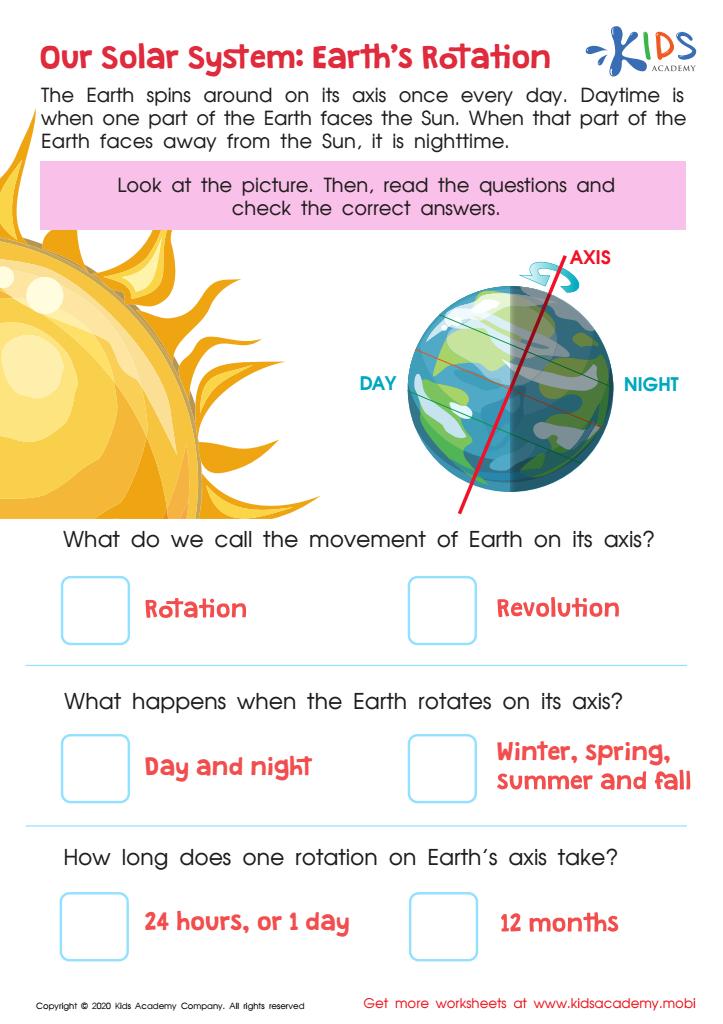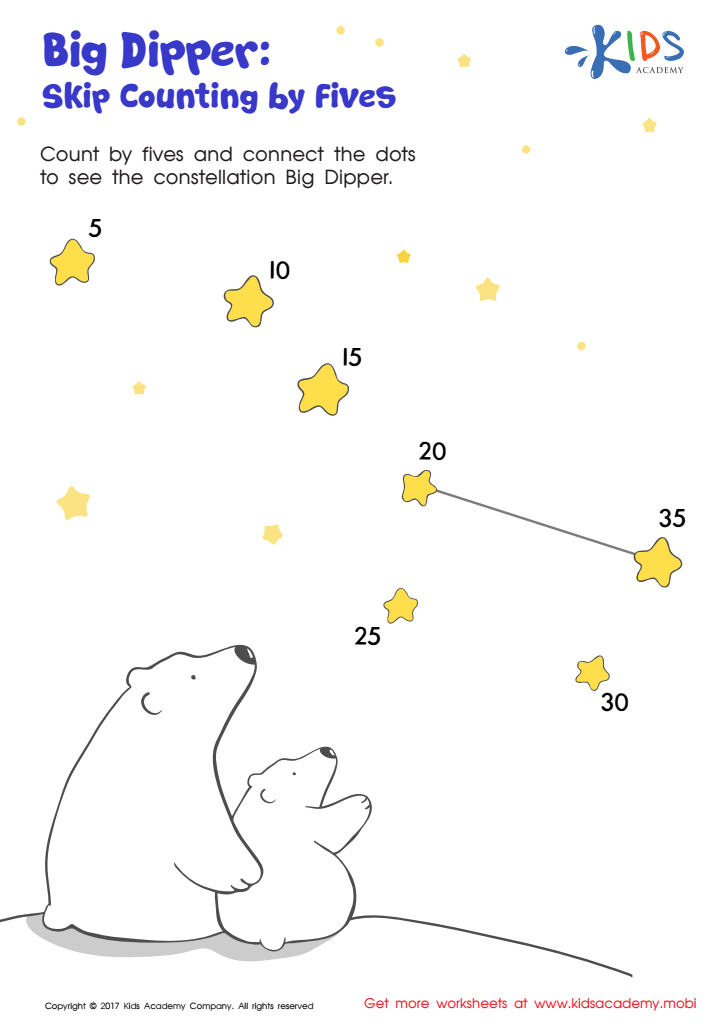Astronomy basics Worksheets for 7-Year-Olds
3 filtered results
-
From - To
Explore the wonders of the universe with our engaging Astronomy Basics Worksheets designed specifically for 7-year-olds! These printable resources introduce young learners to fundamental concepts of astronomy, including planets, stars, and constellations, in a fun and accessible way. Each worksheet features vibrant illustrations and interactive activities that captivate children's interest while enhancing their understanding of celestial bodies and space phenomena. Perfect for both classroom use and home learning, these worksheets help foster inquiry and encourage a lifelong fascination with astronomy. Dive into the cosmos and watch your child's love for science soar with our thoughtfully crafted materials!


The Night Sky: Leo Worksheet


Our Solar System: Earth's Rotation Printable
Parents and teachers should care about teaching Astronomy basics to 7-year-olds for several compelling reasons. First, it stimulates curiosity and encourages a love for science. At this age, children are naturally inquisitive, and learning about the stars, planets, and the universe can ignite a passion for exploration and discovery. This foundational knowledge also helps foster critical thinking and problem-solving skills as they learn how to ask questions and seek answers about the world around them.
Furthermore, astronomy provides a wonderful opportunity to contextualize concepts in mathematics and physics, making them more relatable. For instance, discussing distances in space can introduce measurements, while the movement of planets can help illustrate gravity and rotation. This tangible connection helps reinforce their classroom learning.
Additionally, understanding the cosmos enhances children's awareness of their place in the universe, promoting feelings of wonder and interconnectedness. It can also encourage discussions about environmental responsibility, as children learn about the Earth’s fragile ecosystem within a vast universe.
Lastly, activities like stargazing can enhance family bonding and foster social interaction in classrooms. Overall, engaging young learners with Astronomy not only enriches their educational experience but also nurtures their sense of curiosity and responsibility towards the world.

 Assign to My Students
Assign to My Students




















